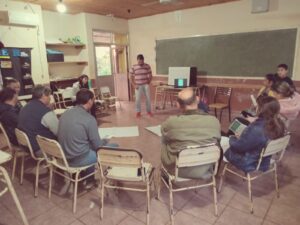Nideport initiates planting activities in the Vida Nativa GS1 Reserve
Without forests, life on Earth would not be possible. Forests, together with the oceans, are the lungs of the planet and their role in the fight against climate change is vital, absorbing every year some 2,000 million tons of CO2 (the main greenhouse gas and the main culprit of global warming).
The overexploitation of natural resources, through logging or urban growth, is the main cause of desertification attributable to humans, but there are others that do not depend on them. Among them are inconsistent rainfall and seasonal droughts, soil erosion and poor soils, or forest fires due to climate change. Against this backdrop, reforestation is one of the most effective strategies to reverse this problem.
Reforestation consists of replanting deforested areas to recover forests degraded in the recent past.
The Nideport forestry team has developed and implemented in the field a clear-cutting trial with five native species in order to evaluate technical criteria for continuous improvement of the restoration plan.
An important area was covered with native species with the collaboration of UNAU students who also continue to assist with the monitoring and follow-up of each planted specimen.
The species were selected based on the criteria of being important for the services they provide to the environment, for their usefulness to humans, and for having promising characteristics for use in restoration and reforestation programs.
Nideport has already completed the first internal audit of the survey of forest inventory plots.
Using drone flights, we obtained 3D images of the forest structure in each plot to add credibility to the field measurement system.





















